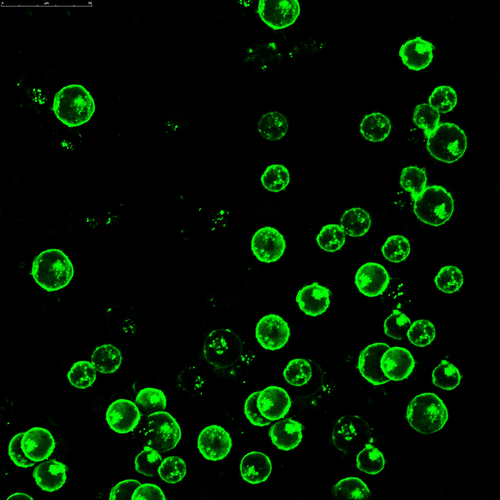Genome-wide CRISPR screening for modifiers of diverse cellular phenotypes
 Aim
Aim
We are developing and optimising a pipeline for pooled genome-wide CRISPR knockout and activation screens to identify modifiers of cellular phenotypes, using single guide RNA libraries that target every protein-encoding gene in the human genome. Once established at UQ this technology has the potential to be applied to answer numerous biological questions based on a variety of phenotypic assays to define molecular mechanisms in populations of cells.
Brief project outline
Identification of molecular mechanisms of cellular functions in an unbiased manner has until recently been time-consuming and unreliable. Developments in CRISPR-based genomic editing technology now promises effective and rapid screening of all protein-encoding genes to define their individual contributions to cell function. Genome-wide CRISPR screening has recently become widely used to identify genes involved in cancer cell toxicity and drug resistance. We now aim to diversify the application of whole-genome CRISPR screening to allow the assessment of a diverse array of cellular mechanisms in a high-throughput but targeted manner. This technique will be applicable to many areas of study and model organisms used at UQ, as signified by interest from diverse collaborating UQ labs and alignment with complementary approaches within the GIH.
Genomics-based innovative aspect of proposal
Genome-wide CRISPR screens allow the interrogation of every protein-encoding gene in the genome. Well-characterised, optimised, genome-wide sgRNA libraries for gene knockout and activation have only become available in the last ~3 years. Therefore, we are currently only at the tip of the iceberg with regard to the possible applications of this technology. We seek to establish, for the first time at UQ, a platform for conducting complementary human genome-wide CRISPR knockout and activation screens in established cell lines.
Broad applicability of the technique
This technology is highly versatile and it will applicable to answer many biological questions of interest to UQ researchers. This technique will be of interest to any UQ research groups who seek to understand either the fundamental mechanism of action of cellular pathways or the pathobiology of disease in established cell lines – involvement of the GIH will allow us to develop further collaborations outside our field. We will be willing to help and work with other groups as they adapt the pipeline that we have developed to their own studies, and establishment of this pipeline in our studies will provide initial proof-of-principle to increase the feasibility of our collaborator’s projects for application for funding from other agencies, including NHMRC. We believe that this project has potential to greatly advance the scope of CRISPR genome editing research at UQ.




